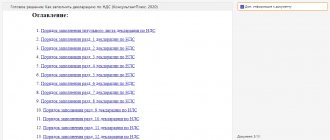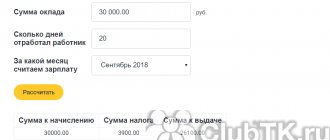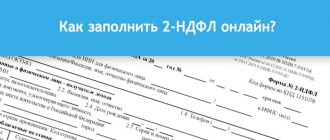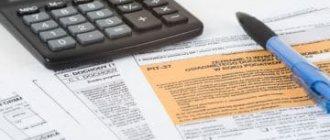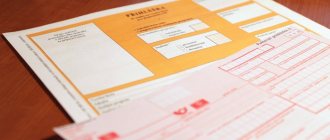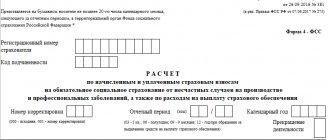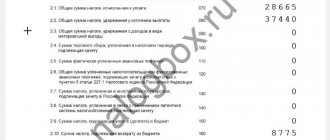What types of tax audits are there?
An individual entrepreneur is a business entity that is required to keep tax records. The entrepreneur reports information on income, expenses, contributions paid and advance payments in tax returns. The form of the report and the frequency of its submission depend on the applicable taxation system.
For example, an individual entrepreneur submits only one annual declaration on the simplified tax system, but must report on UTII every quarter. There are no declarations only in the patent taxation system, because the cost of the patent, i.e. the tax amount is known in advance.
Generate a simplified taxation system declaration online
During a desk audit, the Federal Tax Service Inspectorate checks each declaration received within three months after its submission. What is a desk tax audit? This is a study of the form and content of the declaration at the tax office itself, without special notification to the individual entrepreneur.
Create a UTII declaration
The inspector checks the correctness of filling out and also evaluates the accuracy of the specified data. If questions arise during the desk audit, the inspectorate will send the taxpayer a request to provide explanations or submit an updated declaration. Typically, a desk tax audit of an individual entrepreneur ends here, but if the explanations received do not satisfy the Federal Tax Service, then an act is drawn up and a decision is made on the results.
An on-site tax audit differs significantly from a desk audit. It is carried out on the basis not of one declaration, but for a certain period of activity of the individual entrepreneur - up to three years. The on-site inspection can last up to two months, with the possibility of extension up to four, and in exceptional cases - up to six months.
An on-site inspection of an individual entrepreneur by the tax inspectorate can be carried out at his place of residence, but access to residential premises is possible only with the consent of those living in them.
In practice, such an inspection is usually carried out not at the entrepreneur’s home, but in his office, store or other commercial premises. You can temporarily rent a room specifically for conducting an on-site inspection of an individual entrepreneur, where conditions have been created for the inspector.
If the entrepreneur cannot create the appropriate conditions, then an on-site inspection is carried out by the Federal Tax Service itself. To do this, you must submit all the necessary documents and materials to the inspection.
What can a fine be imposed for?
All violations committed by entrepreneurs can be divided into several groups.
The individual entrepreneur did not submit reports on time
Late submission of reports may result in liability under Article 119 of the Tax Code . For this, a fine of 5% for each full and partial month of non-payment of the amount of unpaid tax. The amount of the fine has a minimum and maximum limit. Thus, the fine cannot be more than 30% of the amount of taxes. The minimum fine is 1,000 rubles . He assigns, for example, if an entrepreneur paid tax but did not file a tax return on time.
There is another measure of influence on taxpayers who do not submit reports on time. If the documents are not received by the Federal Tax Service within 10 days after the deadline for their submission, the inspectorate may block the individual entrepreneur's current account . In order for it to work again, you will first need to submit a report.
The individual entrepreneur did not pay taxes
You can also receive a fine for non-payment of taxes - this is stipulated in Article 122 of the Tax Code of the Russian Federation. Its size is 20-40% of the unpaid tax amount. And for late payments, the Federal Tax Service will charge penalties based on 1/300 of the refinancing rate for each day of delay.
Individual entrepreneur commits irregularities in accounting and calculation of income and expenses
Violation of the procedure for accounting for income and expenses leads to the fact that taxes may be underestimated. If an individual entrepreneur committed gross violations in such accounting, namely, incorrectly reflected business transactions (at least twice during the year), did not draw up or did not save primary documents, then he will be fined under Article 120 of the Tax Code of the Russian Federation. The fine will be:
- 10,000 rubles if violations occurred during one tax period.
- 30,000 rubles if gross violations were committed during two or more tax periods.
- 20% of the amount of unpaid tax, if as a result of such violations its amount was underestimated. The minimum fine in this case is 40,000 rubles.
The individual entrepreneur committed other violations
Here are a few more common violations:
- Failure to fulfill the duty of a tax agent. In some cases, an individual entrepreneur must calculate and pay tax not for himself, but for others. For example, personal income tax for hired employees or VAT when renting premises from a municipal authority. For failure to fulfill such obligations, in accordance with Article 123 of the Tax Code of the Russian Federation, a fine is imposed. It will amount to 20% of the amount that should have been withheld by the tax agent and transferred to the budget. If he submits documents that contain false information, he will pay a fine under Article 126.1 of the Tax Code of the Russian Federation in the amount of 500 rubles for each document.
- Failure to comply with the requirement to provide documents or information about the taxpayer. This refers to information about the individual entrepreneur's counterparties, which the Federal Tax Service may need to carry out tax control activities. If the individual entrepreneur does not provide the data he has or they are unreliable, then the fine in accordance with Part 2 of Article 126 of the Tax Code of the Russian Federation will be 10,000 rubles.
- Violation of the procedure for working with cash register systems. For any cash payments, including payment by bank card, the individual entrepreneur must use cash register equipment. Violation of this rule is subject to a fine under Article 14.5 of the Code of Administrative Offences. Its amount is 25-50% of unaccounted revenue, but not less than 10,000 rubles.
How often does the Federal Tax Service conduct inspections?
The report of the Federal Tax Service on the implementation of tax control carried out in 2021 provides the following figures:
- number of employees engaged in control and supervisory activities – 18.2 thousand;
- 62.8 million desk checks were carried out, of which 5.5 million required additional documents and information;
- the number of on-site inspections amounted to 9.3 thousand, of which only 985 inspections were carried out in relation to small businesses applying special regimes;
- on average, one on-site inspection brings 21 million rubles to the budget, which is 1.7 times more than in 2021;
- in total, based on the results of desk and field audits, taxpayers were accrued an additional 338.7 billion rubles;
- In addition to desk and on-site inspections, tax authorities carried out 76 thousand measures to monitor the use of cash register systems, as a result of which fines were assessed in the amount of 557 million rubles.
The tax authorities themselves say that the vector of control work has been shifted from mass on-site inspections to remote analysis of business activities.
The Federal Tax Service disclosed the criteria by which a taxpayer can be included in the on-site inspection plan back in 2007. By order of May 30, 2007 N MM-3-06 / [email protected] the corresponding Concept was approved.
Labour Inspectorate
The Labor Inspectorate checks for compliance with the Labor Code. They will check your personnel documents, your employment contracts with each of your employees, your salary payment schedule, your employees’ vacations, etc. Based on the results of the inspection, a protocol is drawn up, which indicates violations and instructions for eliminating them. Serious violations may result in manager disqualification.
Risk-based approach or test yourself
The Federal Tax Service directly states that the possibility of not including on-site tax audits in the plan depends on the transparency of the business, the completeness of the calculation and payment of taxes to the budget.
The concept of the planning system for on-site tax audits is based on the following principles:
- two-way responsibility of taxpayers and tax authorities: the former must conscientiously fulfill their tax obligations, and the latter must reasonably select objects for inspection;
- conscientious taxpayers receive most favored nation treatment;
- the selection of an object for inspection is based on reliable signs of possible tax offenses;
- Punishment for violation of legislation on taxes and fees must be inevitable.
Tax authorities draw up on-site audit plans for internal use only; this is a confidential document. Taxpayers are not informed about the audit in advance; inspectors only have to present the relevant decision and official identification.
Free tax consultation
In total, the Federal Tax Service has established 12 main criteria that you need to analyze yourself and assess the risks of conducting an IRR for your business:
- The tax burden is below the average level for the industry or type of economic activity.
- For two or more years, the taxpayer reports losses.
- The average salary of employees is lower than the salary for this type of activity in the same subject of the Russian Federation.
- The taxpayer under special regimes has repeatedly approached the limits allowing their use. For example, the retail space on UTII is 149 square meters. meters or the number of employees on the simplified tax system - 99 people.
- IP on OSNO shows a high share of expenses in income received - more than 83%.
- Expenses are growing at a faster pace than the growth rate of income from the sale of goods, works, and services.
- The share of declared VAT deductions for a period of 12 months exceeds 89% of the amount of accrued tax.
- The taxpayer does not respond to the demands of the Federal Tax Service to provide explanations on desk audits of declarations.
- Business activities are based on entering into contracts with intermediaries without a reasonable business purpose.
- Frequent migration between tax offices, e.g. change of address, but this criterion applies mainly to organizations.
- The level of profitability deviates significantly from the average for this field of activity.
- The taxpayer does not exercise reasonable care when choosing partners, entering into relationships with unscrupulous counterparties.
In full, the risk criteria for conducting a GNP can be found here.
Results
In order to improve conditions for small businesses, the frequency of inspections is strictly regulated. The control covers periods of no more than 3 years. Additionally, businessmen are given vacations. The moratorium does not cover only the most critical activities.
Even at the stage of drawing up a business plan, the future entrepreneur should think through all the details and organize the business in such a way as to prevent violations. Those who do not know what documents are needed to verify an individual entrepreneur should familiarize themselves with the listed regulations and keep the most important documentation at hand.
conclusions
- Tax audits of individual entrepreneurs can be of two types - office and on-site.
- A desk tax audit of individual entrepreneurs is carried out in relation to all submitted declarations, i.e. this is a mass phenomenon. In most cases, a desk audit does not have any unpleasant consequences; the entrepreneur is not even informed about its conduct.
- An on-site inspection of an individual entrepreneur by the tax inspectorate is rarely carried out, only if the Federal Tax Service Inspectorate has good reasons for this. This type of control almost always leads to significant additional tax charges and fines.
- To reduce the risk of conducting an on-site inspection, an entrepreneur needs to analyze his activities, guided by the Concept approved by order of the Federal Tax Service dated May 30, 2007 N MM-3-06/ [email protected]
- Checking individual entrepreneurs for the use of cash register technology does not apply to desk or field inspection. About 95% of such inspections reveal violations of the law, which leads to the imposition of administrative fines. Considering that from mid-2021, individual entrepreneurs using the simplified tax system for income will be able to work without declarations, the number of this type of checks will increase significantly.
Rospotrebnadzor
Rospotrebnadzor will monitor your business activities if you work with the public: sell them something or provide any services.
They can check on many points. For example, compliance with the sanitary and epidemiological conclusion, availability of certificates of conformity for goods and products, agreement on garbage removal, shelf life of products, compliance with the rules of commodity proximity, compliance with temperature conditions during storage, etc.
Based on the results of the inspection, you may be fined. Fines can be impressive; more details about them can be found in Articles 6.3 and 6.4 of the Code of Administrative Offenses, as well as in Articles 14.4, 14.7, 14.8, 14.15, 14.16, 19.5, 19.6 and 20.25 all in the same place.

